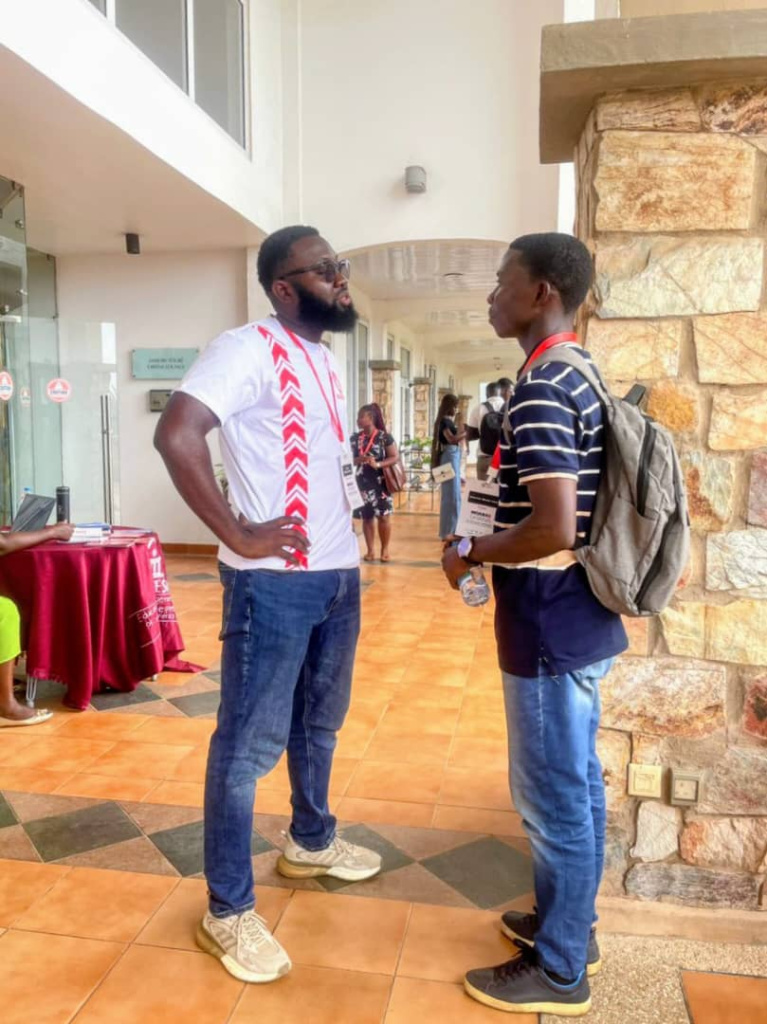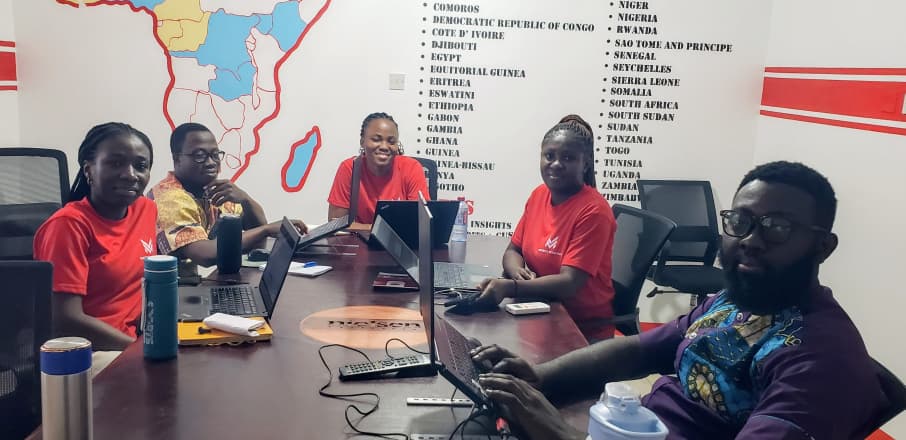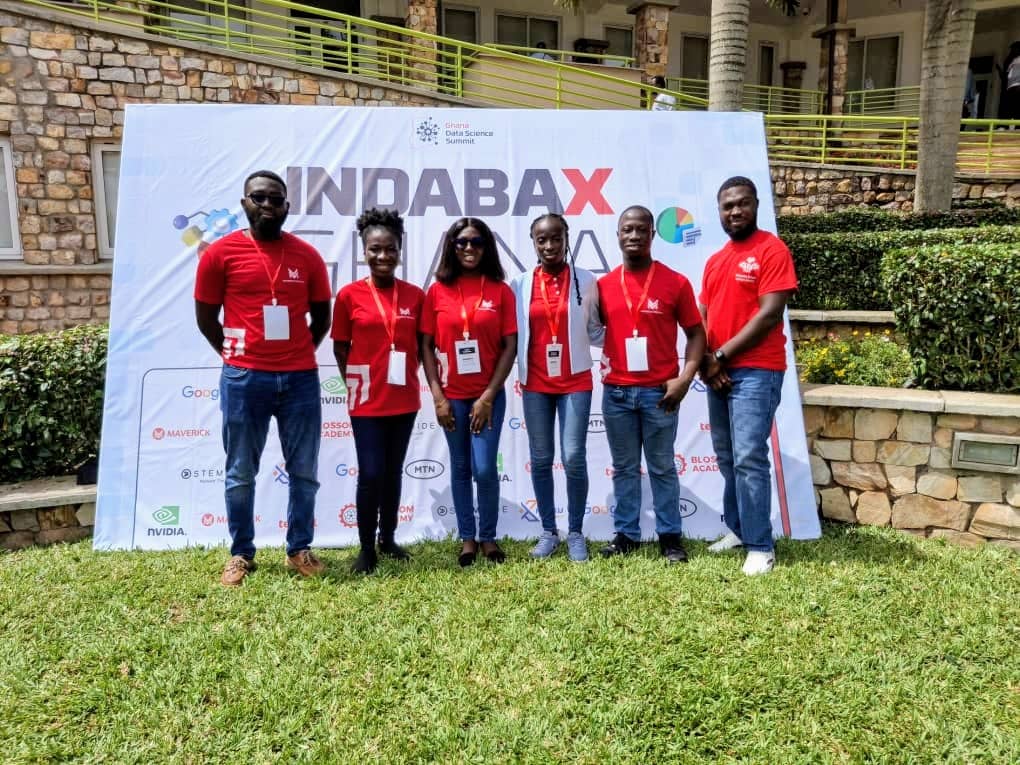30Under30 Honouree: Yussif Muftawu Fianko

Great to hear from Global 30 Under 30 Honouree, Yussif Muftawu Fianko, who leads data science at Maverick Research, where he has built data infrastructure supporting market research operations across three African countries and mentored the next generation of insights professionals in Ghana.

How did you get into the industry and reach this point?
I found my way into market research almost by accident. After earning a Computer Science degree from the University of Mines and Technology in Ghana, where my final project focused on using statistical models to predict stock market movements, I was convinced I was headed into financial technology or software development.
Then, in September 2020, I joined Maverick Research. The mission immediately pulled me in: to build the first African designed market research platform for African markets. We were a small technical team of four supporting six countries, taking on what felt like an impossible challenge.
The early months were tough. Constant trial and error, unreliable systems and dashboards that didn’t match reality. When our lead Data Scientist left in early 2021, and his replacement soon after, I suddenly became the most experienced technical person supporting clients across all six markets. I was still officially an associate, but I found myself translating the ambitions of international consultants into solutions grounded in African retail realities.
By January 2022, Maverick formalised the role I was already performing and promoted me to Data Science Manager. Since then, I’ve redesigned our entire data infrastructure (reducing processing time by 80%) and built quality assurance systems that strengthened our accuracy and delivery across three key countries: Ghana, Côte d’Ivoire and Cameroon.
What keeps me here? The complexity. Each market behaves differently. Every brief demands an understanding that goes beyond data into culture, consumer behaviour and the business landscape. And in African markets especially, we aren’t iterating on an established system. We’re building the playbook as we go. That’s what makes this work exciting.

Why should someone consider a career in market research, data and insights?
Because in this industry, you get to be the person who answers “why?”
Every major business decision (pricing, distribution, product innovation, market entry) should be grounded in understanding real people. Market research sits at the intersection of human behaviour and business strategy.
For those of us with technical skills, this field offers something rare: your work directly shapes decisions. You’re not building features that go unused or producing reports that never leave a folder. You’re translating data into stories that change how companies compete and grow.
For African researchers specifically, we’re not just joining global conversations about consumer insight. We’re redefining them. Traditional methodologies built for Europe or North America don’t always reflect the realities of Ghana, Cameroon or Côte d’Ivoire. We adapt. We innovate. We build research that fits our context and reflects our consumers.
And honestly? The variety keeps you sharp. One week you’re evaluating pricing strategy for a beverage client. The next, you’re solving distribution gaps for a pharmaceutical brand.

Career paths are rarely without challenges. Can you share a moment from your career when things didn’t go to plan, but the lessons learned remain with you to this day?
The crisis that nearly broke me happened in late 2021. Our international consultant became unavailable due to personal issues, right when we were at our most critical period. I was an associate on paper but suddenly responsible for team operations and client deliveries across six markets.
I made mistakes. Some cost us team members. I remember one situation where my inexperience in managing difficult conversations led to a talented colleague leaving, someone we could not afford to lose. I had been so focused on the technical problems that I failed to see the human ones building up around me.
The lesson that stays with me: technical excellence means nothing if you cannot lead people through uncertainty. I learned that effective leadership often emerges from necessity rather than appointment. I learned that transparent communication, even when you do not have answers, builds more trust than pretending everything is fine. And I learned that making mistakes is inevitable and what matters is whether you grow from them.
That period transformed both my capabilities and my understanding of what leadership actually requires. The crisis that nearly ended our project became the catalyst for developing skills I did not know I possessed.

What two things should junior researchers focus on as they progress in their careers?
First: Understand the business, not just the data. It’s easy to get absorbed in methodology, statistical significance and perfect visuals. But clients don’t care about your p-values. They care about what decisions they can make. Every analysis should answer two questions: “So what?” and “What should we do differently?”
Early in my career, I produced technically accurate work that drove no action because it lacked business context. Now, I start every project by clarifying the decision it must inform. You get better outcomes by working backward from the decision, not forward from the data.
Second: Build systems, not just outputs. Anyone can produce a report. Very few build a process that makes reports faster, more accurate and more reliable. Think scale: document your workflow, automate what you can, create templates and design infrastructure others can use.
The work that got me recognised wasn’t any single analysis. It was designing systems that enabled our entire team to deliver better work across multiple markets. That kind of thinking compounds over time and sets you apart.

Do you have any advice for our sector?
Invest in African researchers and African built solutions.
The global insights industry still relies heavily on methodologies developed in Western markets and exported elsewhere. But African markets, with their diversity, complexity and distinct consumer behaviours, need approaches built from the ground up by people who truly understand them.
I’ve seen firsthand how assumptions that work in mature economies collapse in environments with different retail structures, infrastructure realities and cultural dynamics. That’s why Africa needs greater investment in local talent, local methodologies and local technology platforms.
The opportunity is immense. Africa’s consumer markets are expanding rapidly and companies that understand these consumers deeply will be the ones that lead. But real understanding cannot come from parachuting in consultants for short-term engagements. It requires long-term capability embedded on the ground.
To the global research community, partner with African researchers as equals, not just as field execution teams. Fund skills development. Create leadership pathways so African insights professionals can shape the industry, not just support it.
This is not charity. It’s smart business.
The return on that investment will be enormous: stronger commercial outcomes, richer insight quality and solutions that truly reflect the African consumers driving the next wave of global growth.

Is there anyone who has helped or supported you in your career who you’d like to acknowledge or thank?
I have to acknowledge my boss, who took a chance on a fresh computer science graduate with no research experience and gave me room to grow, make mistakes and find my own path. The autonomy and trust he extended, even when I was clearly figuring things out as I went, shaped how I now lead others.
I also want to thank the international consultant who worked with us during our system redesign. She taught me that good mentorship is not about giving answers but about asking the right questions. Our sessions, where I would bring my experimental approaches and she would challenge my assumptions, were transformative.
Finally, my team. The junior analysts who trusted me to lead them, even when I was learning leadership in real-time. Several of them have since taken on leadership roles themselves or pursued further education. Their growth has been the most rewarding part of this journey.